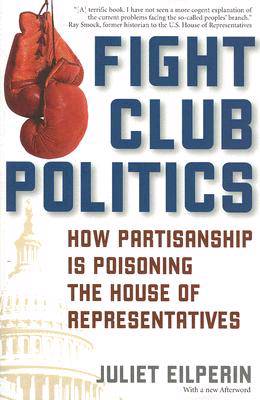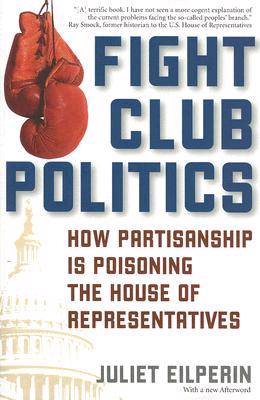
- Retrait gratuit dans votre magasin Club
- 7.000.000 titres dans notre catalogue
- Payer en toute sécurité
- Toujours un magasin près de chez vous
- Retrait gratuit dans votre magasin Club
- 7.000.0000 titres dans notre catalogue
- Payer en toute sécurité
- Toujours un magasin près de chez vous
20,95 €
+ 41 points
Format
Description
The House of Representatives--the "people's House"--is supposed to be the body of government closest to ordinary citizens, reflecting their needs and desires. But it has drifted from its roots in recent years, as lawmakers have become deaf to voters and fixated on maintaining their power inside the Beltway. Just over a decade ago Republicans wrested control of the chamber from Democrats, who had ruled uninterrupted for four decades. They promised to make the House more open and responsive to voters, and these GOP revolutionaries instituted several reforms that did make the House less corrupt. But over time they have lost this heady spirit of reform, as they've punished members who buck the party line and relegated Democrats to the legislative sidelines. Even as Republicans were revamping the House in Washington, party operatives across the country were changing it by redrawing the political maps that decide who gets elected to Congress and who doesn't. Redistricting - the traditional decennial rite in which the country divvies up citizens into voting blocs and maps out new congressional seats in all 50 states - is an inside game that gets little attention outside academia and a tight circle of political pundits. But it is key in understanding why men and women on the far right and far left now control the levers of power in Washington. House members now hail from overwhelmingly Democratic or Republican districts, which means that they spend most of their time catering to their party's base. And once they win their first race they are virtually assured of reelection for as long as they wish, giving them little incentive to focus on what their constituents want, or need. We are now facing a national divide, in which lawmakers are less accountable to the public and more beholden to party leaders. Fight Club Politics will show how our current political system has silenced the average American voter, and how ordinary citizens can reclaim the institution that claims to represent them. Published in coo
Spécifications
Parties prenantes
- Auteur(s) :
- Editeur:
Contenu
- Nombre de pages :
- 192
- Langue:
- Anglais
- Collection :
Caractéristiques
- EAN:
- 9780742551190
- Date de parution :
- 29-03-07
- Format:
- Livre broché
- Format numérique:
- Trade paperback (VS)
- Dimensions :
- 149 mm x 228 mm
- Poids :
- 254 g

Les avis
Nous publions uniquement les avis qui respectent les conditions requises. Consultez nos conditions pour les avis.






